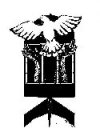

 |
 |
by John LaForge
A federal jury took fewer than three hours to convict Bonnie Urfer and Michael Sprong of willfully damaging Navy property after a one-and-a-half day trial in Madison, Wisconsin. The hasty deliberations were the result of a pretrial ruling in limine that declared "irrelevant and inadmissible" all testimony or evidence referring to Project ELF, Trident submarines, nuclear weapons and war policy, the humanitarian laws of war, or the U.S. Constitution.
Urfer and Sprong took the verdict in stride, disappointed but unfazed
and upbeat. Sprong said, "My heart and head both agree with [imprisoned
Plowshares activist] Philip Berrigan, who says these plowshares actions
are the best way we've found to disarm the weapons." 
The two return to Madison for sentencing May 4, to face a possible year in prison and a $100,000 fine.
During the two-day trial, Urfer and Sprong admitted having sawed down three of the 4000 wooden poles that suspend the giant antenna wire - the nuclear Navy's Project ELF submarine transmitter system - known to its opponents as a "starter pistol for nuclear war." The ELF transmitter sends one-way orders to submerged missile-firing, nuclear-powered British and U.S. submarines around the world.
Jurors and a courtroom filled with more than 80 spectators watched a 25 minute videotape of the disarmament action made by Nukewatch activist Barb Katt. The video was surrendered as evidence when Katt was apprehended at the action site, and presented as part of the prosecution's case. A note from the defense table was circulated in court to remind supporters: "Please don't cheer when the pole falls!"
The jury heard no expert testimony and saw none of the voluminous documentation of the fact that Pentagon plans for nuclear war are illegal under U.S. law, U.S. military manuals and binding treaties. While the video showed Spring and Urfer posting a Citizens' Indictment citing these documents and the word "Nuremberg" clearly painted on the downed pole, neither the Indictment nor the Nuremberg Principles were allowed as evidence or seen by the jurors.
A glimmer of hope for at least some testimony about the prohibited subjects came when Magistrate Crocker accepted the unusual "advice of counsel" defense, which might excuse a crime if the defendants acted in good faith, believing the competent legal advice of an attorney that a particular act would be lawful. But Crocker also called for a "newspaper model" of such defense testimony. "No elaboration" he said, "just headlines." With the in limine ruling on one hand, and the "headline" restrictions on the other, witness testimony was in a straitjacket.
Urfer and Sprong both testified about the advice given them by several attorneys, including Anabel Dwyer, an Adjunct Professor of international human rights law who helped argue the International Court of Justice case regarding the use and threat of nuclear weapons. The result, Urfer calmly testified, is that "I thought the action to be completely lawful. I believe that stopping the annihilation of life on Earth is lawful." She explained that nuclear weapons violate the U.S.'s own rules of war. "They kill indiscriminately and poison the earth far into the future," she said.
Sprong testified that they'd put a great deal of time into planning, studying the laws of war, and deciding on the best way to go about lawfully disarming Project ELF. A question about Article VI of the U.S. Constitution (which calls treaties "the supreme law of the land") was raised. "Objection!" cried the prosecutor, and the question was ordered withdrawn by the Magistrate.
Sprong said from the stand, "Anabel explained that according to law, the threat to launch [nuclear weapons] is as illegal as using the weapons." He said, "As we sit here, [ELF] is an active threat. That's its job; that's what it does."
The prosecutor saved most of his objections for attorney Dwyer, who tried to work within the court's restrictions while explaining the illicit power of H-bombs and the precedence of treaties when conflicts arise between federal statutes and the law of nations. Yet the jury was told to disregard much of her testimony, "headlines" or not.
Because of the unusual defense presented and the ruling in limine, lengthy discussion outside the presence of the jury resulted in Crocker delivering jury instructions that evidently only compounded juror's confusion about the law and the shredded remnants of the defendants' case.
Reflecting on the trial, Bonnie Urfer recalled, "Judge Crocker said, 'This trial is ahead of its time.' I wish I were more confident of having enough time."
For more information, contact the Trident Resistance Network - Midwest, P.O. Box 373, Luck, WI 54853, (715)472-4185.
